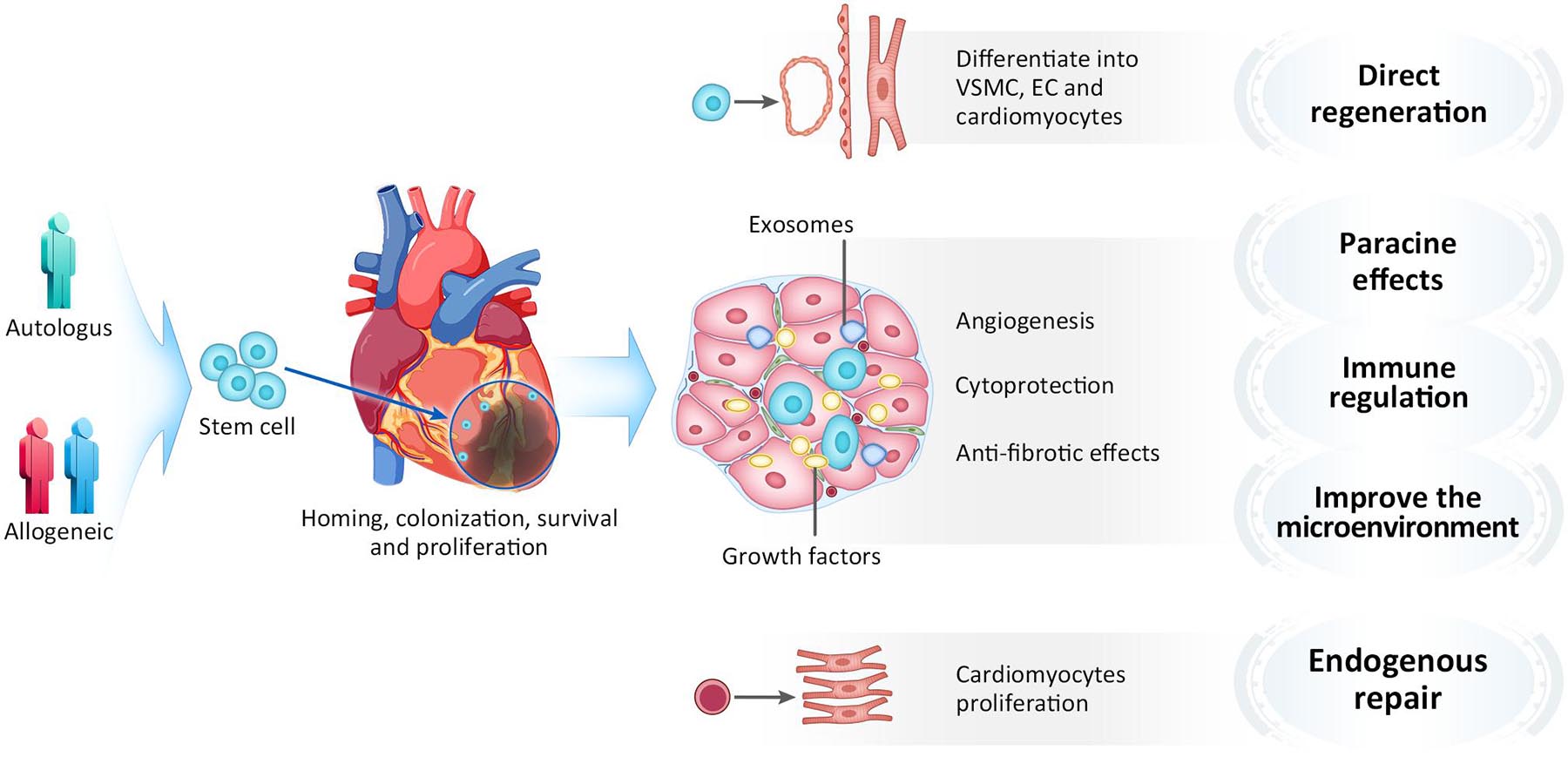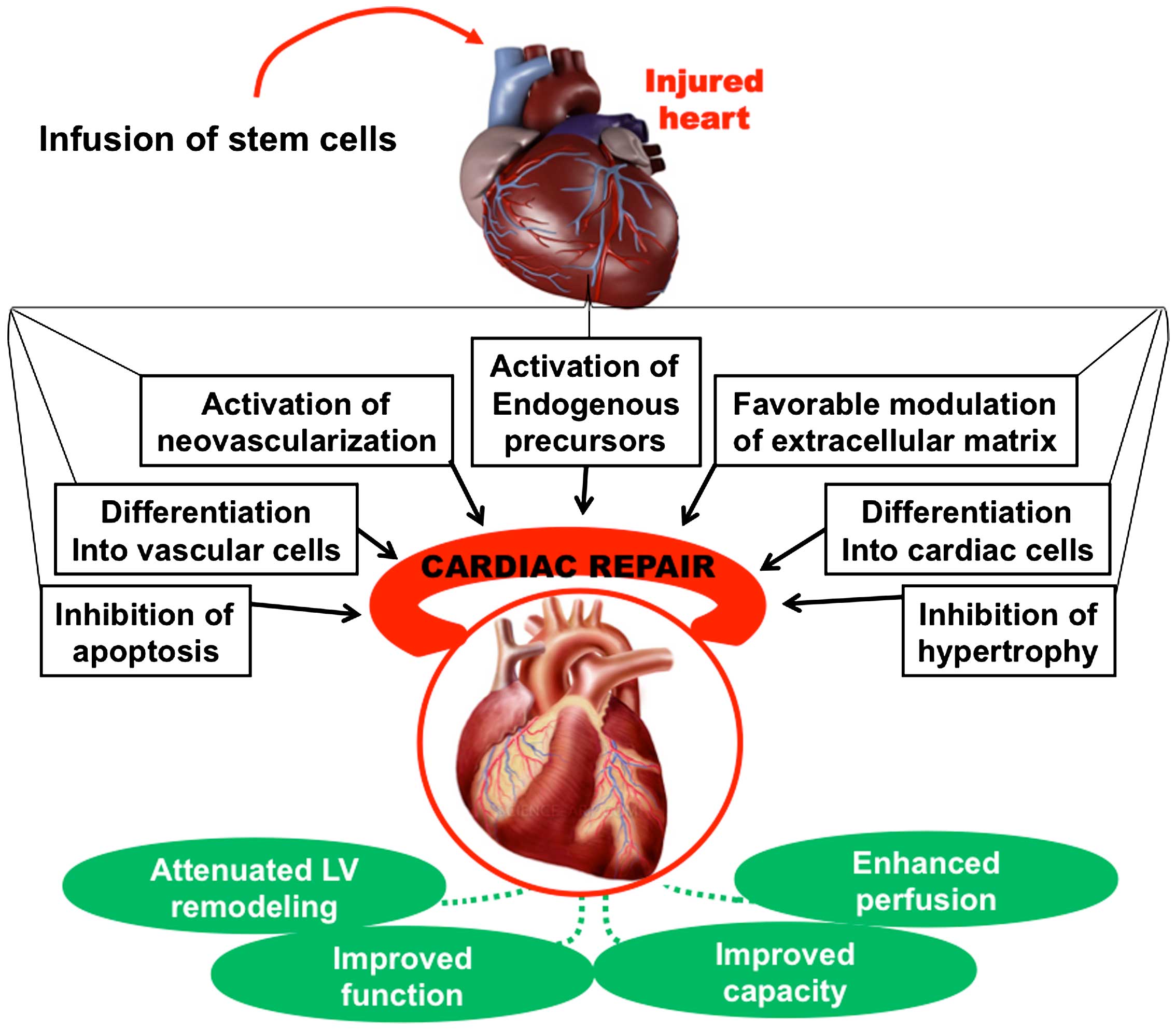Table of Contents

A 2014 meta-analysis of 23 randomized regulated tests including 1,255 individuals revealed a decrease danger of mortality or re-hospitalization in the long-term for individuals who undertook a stem cell therapy for cardiovascular disease. In spite of some encouraging outcomes, the diverse web content and personality of these research studies and the limited understanding of basic concepts, paths and various other variables have slowed progress, especially as it concerns the one of one of the most complex muscle mass in the human body. Many of these studies were in the handling of completing stage II and some were even moving into stage III. Today, even more and more professional trials using stem cells like those found in cord cells are being utilized to deal with heart disease.
Stem cell exosomes are a cutting-edge treatment for heart wellness, delivering powerful healing properties to damaged heart cells. Unlike traditional stem cell treatments, these small vesicles can enhance cardiac repair work, minimize swelling, and boost heart feature, providing a promising new strategy to cardiovascular care.
Stem cell exosomes promote the development of new blood vessels, a procedure known as angiogenesis, which is important for supplying oxygen and nutrients to restoring heart cells. This increased blood circulation supports the recovery of damaged areas and reinforces the heart's total feature. Stem cell exosomes help in reducing cell death (apoptosis) in the heart after injury, which is critical for preserving heart function.
Inflammation often leads to the growth of heart illness, leading to additional difficulties. Stem cell exosomes have anti-inflammatory homes that help lower inflammation in heart cells.
By decreasing these markers, stem cell exosomes reduce inflammation and minimize tissue damages. Stem cell exosomes manage the immune system, preventing it from overreacting and causing more inflammation in heart tissue.
Can stem cells help with High Blood Pressure — what the science says
This reduction in scarring causes much better heart performance and less difficulties. Stem cell exosomes have actually been revealed to enhance left ventricular function, which is often compromised after a heart strike. By supporting the heart's pumping ability, these exosomes contribute to far better blood circulation and overall cardio health and wellness. Cardiac arrest happens when the heart can no more pump blood efficiently, which leads to a series of wellness issues.
This can cause a much better lifestyle and reduced hospitalizations for heart failing individuals. Stem cell exosomes aid strengthen weakened heart cells, making it more immune to the effects of cardiac arrest. They provide growth factors that improve the structural integrity of the heart, protecting against more degeneration. A stronger heart is better able to manage the demands of every day life and stand up to failure.
They can review your particular heart problem and establish if this therapy is an ideal alternative for you. A specialist assessment makes certain that your heart wellness strategy stays safe and reliable.
Find out about what stem cell exosome treatment involves, consisting of how the treatment is carried out and what to expect throughout the procedure. Testimonial the potential advantages and risks of stem cell exosome treatment with your health care company.
Is stem cell therapy for Peripheral Artery Disease you should know about
A thorough review ensures you make a knowledgeable choice regarding your heart wellness. Work with your physician to develop an individualized heart health and wellness plan that includes stem cell exosome treatment. This strategy must detail the timing and regularity of treatments, as well as any corresponding treatments that might boost your heart wellness.
This approach prevents the intricacies and possible dangers of utilizing online stem cells. Stem cell exosome therapy is generally thought about safe, with marginal negative effects reported. Nonetheless, just like any medical treatment, there might be some dangers, such as moderate swelling or discomfort at the injection website. It is essential to review potential side impacts with your doctor before starting treatment.

Some patients may see renovations in heart function within a couple of weeks, while others may take much longer. BioRestore in Connecticut uses innovative stem cell exosome therapy to help improve your heart wellness and overall health. This cutting-edge treatment targets heart cells, lowering swelling, advertising regrowth, and boosting recovery.
Numerous kinds of stem cells have actually been discovered for their capacity in cardio therapy, including: These cells are acquired from embryos and have the capacity to separate right into any type of cell kind. Nevertheless, their use is limited because of moral issues and the threat of teratoma development. These cells are generated from adult cells that are reprogrammed to have pluripotent capacities comparable to ESCs.
MSCs are grown-up stem cells that can be separated from various tissues, including bone marrow, fat, and umbilical cable. They have been widely utilized in cardiovascular treatment as a result of their capacity to distinguish into numerous cell kinds and their immunomodulatory buildings. CSCs are a kind of grown-up stem cell that is resident in the heart.
Is stem cell therapy for Heart Disease explained

The immunogenicity of stem cells can lead to an immune response, minimizing their efficacy and potentially creating negative results. The massive manufacturing of top quality stem cells stays a considerable obstacle. To overcome the challenges and restrictions, future research study and growth in stem cell therapy should concentrate on: Developing methods to boost the survival and engraftment of transplanted stem cells.
Navigation
Latest Posts
Leading providers of stem cell therapy focused on Arrhythmias
Can stem cells help with Heart Disease and real results
New hope for Heart Disease that uses stem cells